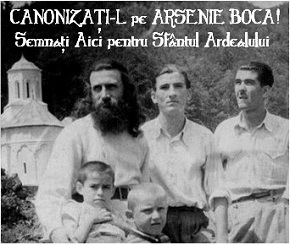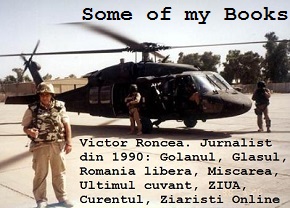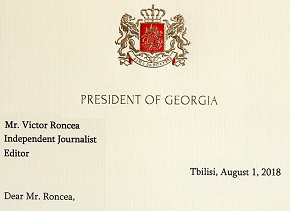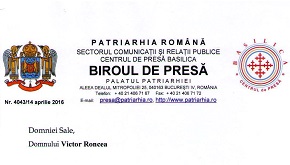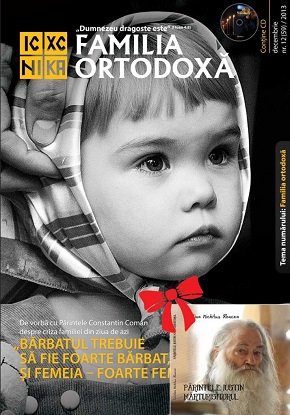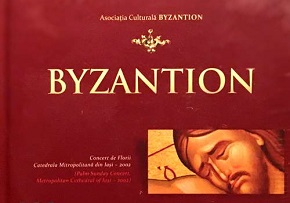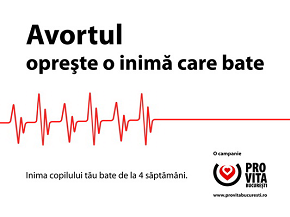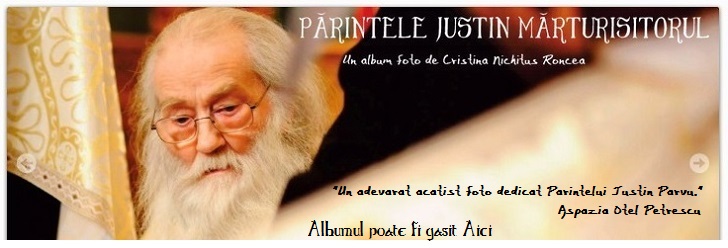 Dupa cum se stie, pastorul Tokes Laszlo, europarlamentar si agitator pentru autonomia Tinutului Secuiesc ca sef al “Consiliului Național Maghiar din Transilvania”, documentat ca agent al securitatii Republicii Populare Ungare, l-a invitat in Romania in aceasta toamna pe liderul tibetan Dalai Lama fara sa mai intrebe si Guvernul roman. Intr-un Comunicat transmis ieri presei ca replica la precizarile ministrului de Externe pe tema vizitei neagreate de catre autoritatile romane, Laszlo Tokes incearca sa ne spuna ca, de fapt, “in mod special vizita se adresează pământului natal al lingvistului Körösi Csoma Sándor, considerat un „sfânt” (bodhisattva) de cei de credinţă budistă”. Iar aceste “pamant natal” nu este neaparat Romania ci, ati ghicit, Transilvania.
Dupa cum se stie, pastorul Tokes Laszlo, europarlamentar si agitator pentru autonomia Tinutului Secuiesc ca sef al “Consiliului Național Maghiar din Transilvania”, documentat ca agent al securitatii Republicii Populare Ungare, l-a invitat in Romania in aceasta toamna pe liderul tibetan Dalai Lama fara sa mai intrebe si Guvernul roman. Intr-un Comunicat transmis ieri presei ca replica la precizarile ministrului de Externe pe tema vizitei neagreate de catre autoritatile romane, Laszlo Tokes incearca sa ne spuna ca, de fapt, “in mod special vizita se adresează pământului natal al lingvistului Körösi Csoma Sándor, considerat un „sfânt” (bodhisattva) de cei de credinţă budistă”. Iar aceste “pamant natal” nu este neaparat Romania ci, ati ghicit, Transilvania.
Totodata, in acelasi comunicat, Tokes nu se sfieste sa faca o paralela intre el, considerat adeseori de ciracii sai drept “liderul spiritual al comunităţilor maghiare care trăiesc în ţările din Bazinul Carpatic”, si Dalai Lama, despre care afirma ca este “conducătorul spiritual al Tibetului aflat în exil” si “purtătorul nu numai al drepturilor propriului popor, ci totodată a libertăţii şi drepturilor omului a tuturor popoarelor asuprite”. Ati ghicit, din nou, printre aceste “popoare asuprite” se afla si bietul popor maghiar din bazinul carpatic, nedreptatit prin odiosul Tratat de la Trianon.
“Bodhisattva” Körösi Csoma Sándor a fost un filolog “secui” nascut in “Tinutul Secuiesc”, – nu-i asa? – respectiv in satul Chiurus (Körös pe ungureste), judetul Covasna, in 1784, pe atunci Regatul Ungariei. Csoma (poate Cosma?), dupa ce a petrecut mai multi ani in Tibet a alcatuit primul dictionar tibetan-englez si a murit in India in 1842.
Miza “vizitei ecumenice” – dupa cum zice Tokes – a pazitorului “tuturor poporului asuprite” este, asadar, internationalizarea chestiunii Tinutului Secuiesc si a “asupritului popor maghiar”.
Este bine sa ne dam seama ca, desi Dalai Lama beneficiaza de o imagine internationala foarte candida iar drama tibetanilor chiar exista, el a fost folosit, de fapt, toata viata sa, pe post de iepuras in santajul media al unei puteri sau alta in relatia cu China.
 Mai mult: dincolo de zambetul sau “zen”” si ecumenic” se ascund aliante care nu de putine ori au dus la varsari masive de sange, cum a fost “revolta” uigurilor din vara anului trecut. Intr-un discurs sustinut pe 1 septembrie 2009 in Parlamentul European, Rebiya Kadeer (foto stanga), preşedinta Congresului Mondial al Uigurilor, a afirmat, punand problema la pachet: „A venit timpul ca guvernul chinez să discute cu mine şi Dalai Lama“. Evident, nu de putine ori, ungurii s-au asemuit cu uigurii, care revendica o buna bucata din China si cu care, culmea, se potrivesc si la “drapelul secuiesc” (vezi foto cu cele doua mai jos). Interesant ca sustinatoarea principala a uigurei a fost presedinta subcomisiei pentru drepturile omului din PE, “ecologista” Heidi Hautala, din… Finlanda, avocata principala a “cauzei maghiare” in Occident si acelasi personaj caruia Laszlo Tokes i-a solicitat sa foloseasca influenta Uniunii Europene si sa intervina pe langa autoritatile boliviene pentru Toaso Előd (nascut la Sovata) si Mario Tadic (mercenar), arestati pentru terorism – daca va mai aduceti aminte scandalul de anul trecut legat de unguri si tentativa de asasinare a presedintelui Evo Morales – ambii membri ai “Legiunii Secuiesti”, infiintata in Ungaria cu scopul declarat al “apararii Tinutului Secuiesc”.
Mai mult: dincolo de zambetul sau “zen”” si ecumenic” se ascund aliante care nu de putine ori au dus la varsari masive de sange, cum a fost “revolta” uigurilor din vara anului trecut. Intr-un discurs sustinut pe 1 septembrie 2009 in Parlamentul European, Rebiya Kadeer (foto stanga), preşedinta Congresului Mondial al Uigurilor, a afirmat, punand problema la pachet: „A venit timpul ca guvernul chinez să discute cu mine şi Dalai Lama“. Evident, nu de putine ori, ungurii s-au asemuit cu uigurii, care revendica o buna bucata din China si cu care, culmea, se potrivesc si la “drapelul secuiesc” (vezi foto cu cele doua mai jos). Interesant ca sustinatoarea principala a uigurei a fost presedinta subcomisiei pentru drepturile omului din PE, “ecologista” Heidi Hautala, din… Finlanda, avocata principala a “cauzei maghiare” in Occident si acelasi personaj caruia Laszlo Tokes i-a solicitat sa foloseasca influenta Uniunii Europene si sa intervina pe langa autoritatile boliviene pentru Toaso Előd (nascut la Sovata) si Mario Tadic (mercenar), arestati pentru terorism – daca va mai aduceti aminte scandalul de anul trecut legat de unguri si tentativa de asasinare a presedintelui Evo Morales – ambii membri ai “Legiunii Secuiesti”, infiintata in Ungaria cu scopul declarat al “apararii Tinutului Secuiesc”.
Povestea merge mai departe: militantii unguri pentru autonomia “Tinutului Secuiesc” intra de fapt in aceeasi categorie cu separatistii teroristi uiguri, extremisti islamici, dupa ce, in iunie 2006 au semnat un “Tratat” intre CNS si Forumul Uigur, organizatie considerata de Statele Unite, si nu numai, drept terorista si ai carei lideri sunt urmariti international.
La 5 iunie 2006, liderii “Adunarii Nationale a Secuilor” au semnat un acord de colaborare cu o organizatie suspecta de terorism: “Forumul Uigur”, unda din organizatiile separatistilor din provincia chineze Xinjiang, pe care separatistii o numesc “Turkistanul de Est”. Miscarea islamica din “Turkistanul de Est” a fost inclusa, la 26 august 2002, potrivit afirmatiilor adjunctului Secretarului de Stat al SUA, Richard Armitage, pe lista organizatiilor teroriste. Conform informatiilor Ambasadei SUA la Beijing, organizatia uigara a planificat un act terorist impotriva misiunii diplomatice a SUA in Kirgistan.
Intelegerea convenita intre “Consiliul National Secuiesc” reprezentat de Jozsef Csapo, presedintele de atunci, si Attila Tulit, vice-presedintele, si “Forumul Uigur”, reprezentat de Perhet Muhammet, prim-secretar, si Umit Hamit Agahi, secreatar general, are urmatorul continut:
“Tratat”
 “Consiliul Permanent al Consiliului National Secuiesc, reprezentant al poporului secuiesc si membrii emigratiei uigure, reprezentate prin Forumul Uigur, avand in vedere legaturile istorice cu poporul uigur, incheiem prezenta intelegere pentru studierea trecutului comun, colaborare periodica in vederea realizarii intereselor comune.
“Consiliul Permanent al Consiliului National Secuiesc, reprezentant al poporului secuiesc si membrii emigratiei uigure, reprezentate prin Forumul Uigur, avand in vedere legaturile istorice cu poporul uigur, incheiem prezenta intelegere pentru studierea trecutului comun, colaborare periodica in vederea realizarii intereselor comune.
Trecutul de mai multe secole al celor doua popoare ne determina sa descoperim si sa cultivam trecutul nostru comun, sa-l interpretam si sa-l consideram ca pe o relatie de fraternitate.
Noi, reprezentanii organizatiilor noastre, am semnat ca semn al recunoasterii colaborarii periodice si fructuoase intre noi.
Presedintele CSN, Jozsef Csapo Vicepresedintele CNS, Attila Tulit
Prim-secretar al Forumului Uigur, Perhet Muhammet Secretarul General al Forumului Uigur, bin Umit Hamit Agahi”
Nota bene: Jozsef Csapo a demisionat in octombrie anul respectiv, printr-o scrisoare trimisa prin fax la CNS, fara a-si motiva insa gestul, iar tatal lui Tulit (in prezent membru al PCM), Attila Imre Tulit, consilier local al UDMR la Sfantu Gheorghe, a fost arestat de DNA pe 22 septembrie, acelasi an, prins in flagrant cu o mita de 20.000 de euro. 
Pentru alte detalii, consultati “Spionajul Ungar in Romania”, de Traian Valentin Poncea si Aurel Rogojan, si Andy McCarthy , sef al Center for Law and Counterrorism al Foundation for Defense of Democracies, care a scris, in National Review’s Corner, articolul documentat The Uighurs Are Coming, the Uighurs Are Coming!:
Despite being steeped in jihadist ideology, trained in explosives and assassination tactics, and anxious enough to get that way that they high-tailed it from China to Afghanistan to become more lethal terrorists, the Uighur Muslim
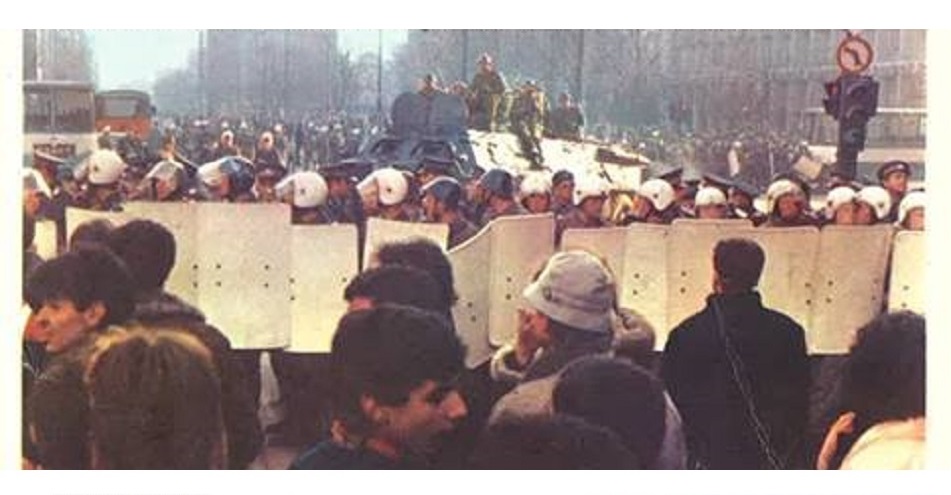
 April 21st, 2010
April 21st, 2010  VR
VR 
 Posted in
Posted in  Tags:
Tags: 






